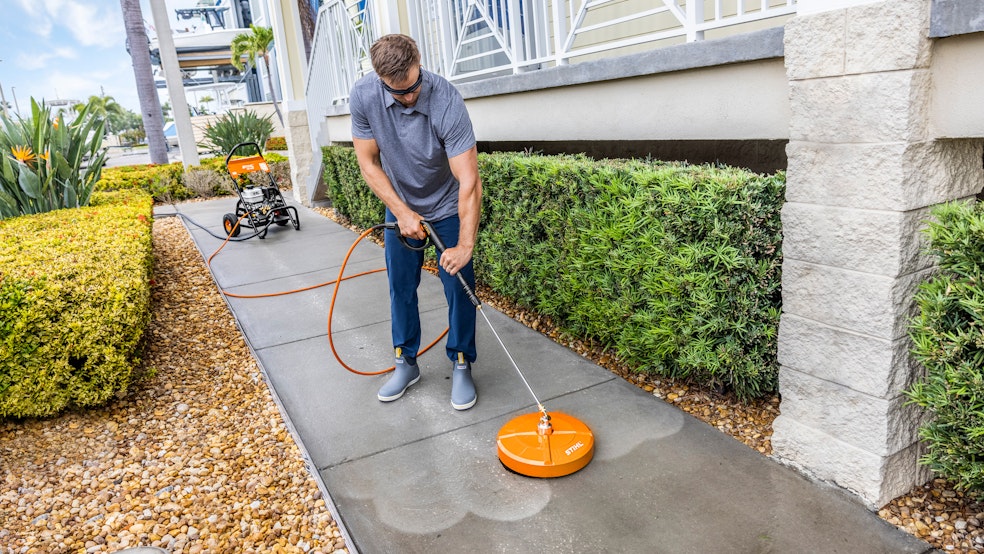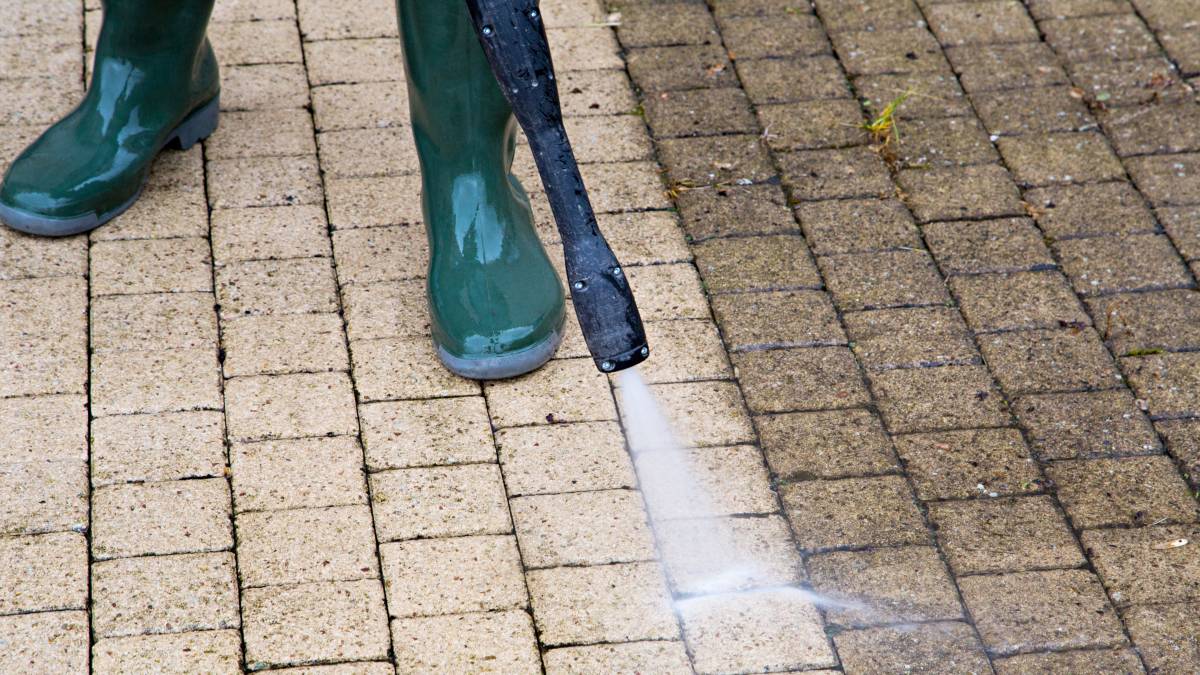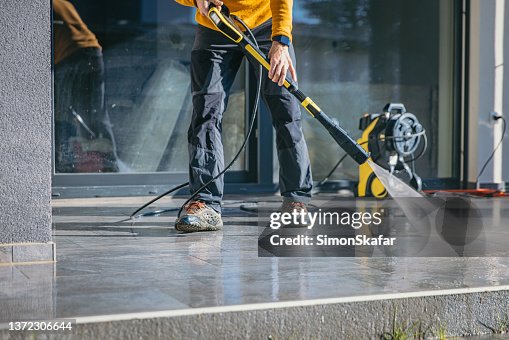Stress Laundering 101: Tips and Strategies for a Pristine Outside
Stress washing offers as a very useful device in preserving the aesthetic appeal of numerous external surface areas, efficiently eliminating built-up dust and spots. As we check out these essential facets, you'll discover just how to elevate your stress washing abilities and guarantee your home stays in immaculate condition.
Recognizing Pressure Laundering
Recognizing pressure cleaning is essential for accomplishing optimum results in exterior cleansing tasks. This technique employs high-pressure water spray to remove dust, gunk, mold, and other impurities from various surfaces, substantially boosting the aesthetic appeal and durability of frameworks and landscapes.
The procedure entails using specialized equipment that produces water pressure normally varying from 1,500 to 4,000 psi, depending on the surface and cleansing needs. Softer surfaces like wood may require reduced stress settings to avoid damages, while concrete can withstand higher stress for efficient cleaning. Along with stress, the temperature of the water can also play a critical duty; warm water can liquify grease and oil extra efficiently than cool water.
Choosing the suitable nozzle is another critical aspect, as different nozzles develop varying spray patterns and stress degrees. Furthermore, understanding the kinds of surface areas-- such as asphalt, vinyl, or block-- assists in tailoring the pressure cleaning strategy to prevent prospective damage.

Vital Equipment Required
To kick off an effective pressure cleaning project, having the appropriate devices on hand is critical. First of all, a trustworthy pressure washing machine is the centerpiece of your arrangement. Pick one with adjustable stress setups, normally varying from 1,500 to 3,000 PSI, depending upon the surface areas you'll be cleaning. Electric versions are suitable for lighter jobs, while gas-powered variations are better for durable jobs.
Next, purchase different nozzles to attain various spray patterns - Pressure Washing Lockhart. A 0-degree nozzle provides a concentrated stream for hard discolorations, while a 25-degree or 40-degree nozzle is suitable for more comprehensive applications

Safety Preventative Measures to Follow
Focusing on safety and security is crucial when participating in stress washing, as the high-pressure water jets can present substantial dangers if not handled correctly. Prior to starting, evaluate your workspace for possible dangers such as electrical lines, delicate structures, or unsafe surface areas. Ensure that the location is free from people, obstructions, and pets to avoid accidents.
Constantly use proper personal protective tools (PPE) This includes security goggles to protect your eyes from flying particles, gloves to secure your hands, and durable footwear with non-slip soles. Consider putting on long sleeves and trousers to reduce skin exposure to high-pressure water, which can trigger injuries.
Maintain a secure distance from the surface area being cleaned, as the stress can trigger damage or injury if intended directly at skin or fragile products. Acquaint yourself navigate here with the pressure washing machine's controls and change the pressure setups according to the particular task available. Never ever run the stress washing machine while on a ladder or elevated surface area without appropriate stabilization, as this raises the danger of falls. By sticking to these security precautions, you can guarantee a much safer and a lot more efficient pressure washing experience. Learn More Here
Methods for Effective Cleaning
Having actually developed a strong foundation of security preventative measures, it's time to concentrate on the techniques that will make certain reliable cleaning with a pressure washer. The initial step is to choose the ideal nozzle. A bigger spray pattern, such as a 25-degree nozzle, is perfect for surfaces like driveways, while a 40-degree nozzle fits fragile locations like repainted timber.
Next, constantly begin cleaning up from the leading and work your method down. This technique stops dust and particles from falling onto areas that have already been cleaned. Maintain a consistent distance of approximately 12 to 24 inches from the surface to prevent damage.

Finally, remember to wash the surface area after cleaning up to remove any kind of residual cleansing representatives. This final action is crucial for preventing touches and guaranteeing a pristine finish. By carrying out these strategies, you will achieve optimal results and expand the life of your surfaces, enhancing the total appearance of your residential property.
Preserving Your Stress Washer
How can you make sure the longevity and optimum performance of your stress washer? Correct maintenance is vital. Start by routinely transforming the oil and checking if your version requires it, as this protects against engine wear and preserves performance. Furthermore, examine and cleanse the air filter to promote optimum airflow and efficiency.
After each use, it is necessary to flush the system with tidy water to see this site remove cleaning agents and debris that can cause clogging. Shop your stress washing machine in a dry, sheltered setting to safeguard it from weather elements, and ensure that all connections are safe and secure before storage.
Pay special interest to the nozzle; clean it frequently to prevent blockages and preserve reliable splashing. Furthermore, keep the high-pressure pipe without twists and punctures, as any kind of damage can compromise functionality and safety.
Lastly, refer to the manufacturer's manual for specific upkeep referrals, consisting of seasonal checks. By sticking to these methods, you can prolong the life of your pressure washer and ensure it operates at peak performance whenever you require it.
Verdict
In conclusion, pressure cleaning serves as a reliable technique for revitalizing external surfaces, properly getting rid of built up dust and stains. Normal maintenance of pressure washing equipment, consisting of routine oil modifications and nozzle cleansing, is needed to ensure constant efficiency.
